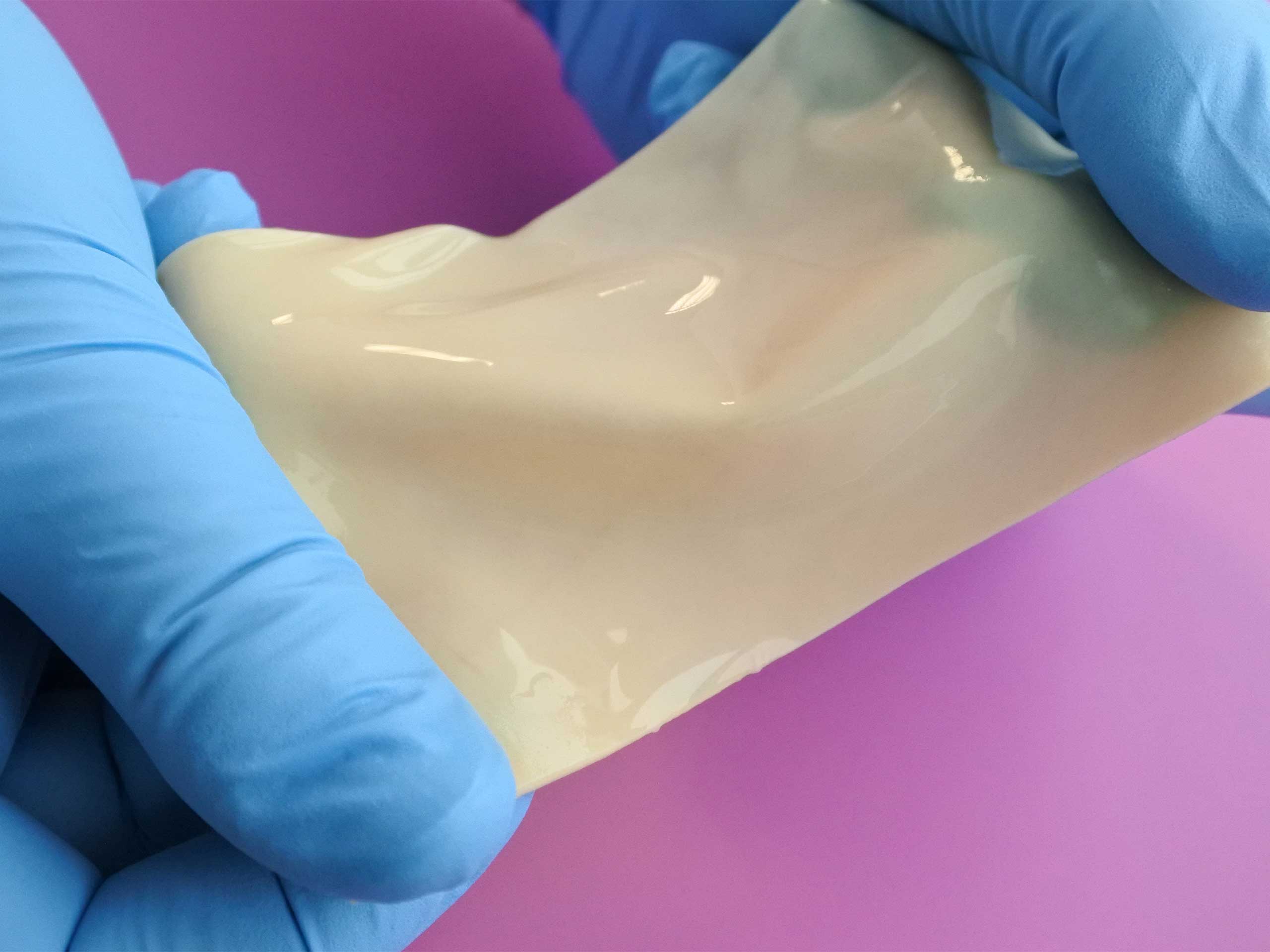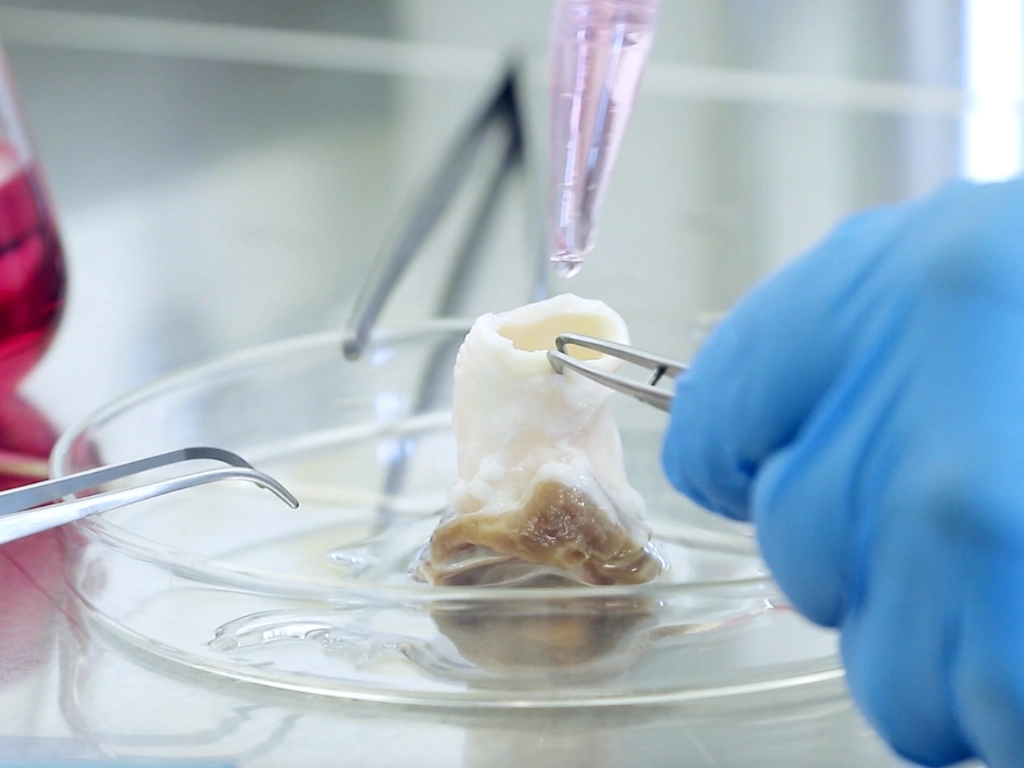
Biostealth technology for biologic medical devices, replacing current cross-linking methods and fixatives
Firmo® is engineered to protect biological tissues used in medical devices without the need for aldehyde-based fixatives or epoxydic resins.
An advanced biostealth technology, Firmo is designed to crosslink biologic tissue totally replacing current fixatives such as aldehydes, epoxydic resins, and related agents – eliminating their associated cytotoxic effects. It has been developed to inhibit common causes for medical device failure such as immune rejection and inflammatory reactions, thrombosis, and infection. Firmo technology avoids the triggering of calcification.
Devices treated with Firmo exhibit excellent mechanical properties and promise to deliver superior clinical performance.
Firmo harnesses a patented formulation of plant-based ingredients
Applications
Cardiovascular
- Percutaneous valves
- Surgical valves
- Biologic tissue patches
Orthopedics
- Tendons and ligaments
- Bones
- Biomaterials (matrices, fibers)
Endovascular applications
- Vascular patches
- Dialysis fistulae
- Others
Women’s health
- Vaginal reconstruction
- Breast reconstruction
Neurology
- Intervertebral discs
- Dura mater
- Bioartificial nerves
- Others

Benefits of Firmo
Firmo is designed to increase the biocompatibility and durability of medical devices, rendering these devices highly resistant to physiologic reactions and extending their lifespan.
- Aldehyde-free bioprosthetic tissue, no need to wash before use
- Maintains excellent mechanical performance
- Blocks xenoantigen recognition by circulating antibodies, avoids triggering an immune-mediated response
- 99% reduction in calcium deposition
- 96% reduction in infection incidence due to lower bacterial adhesiveness
- 90% fewer blood clots
How Firmo Works
Replacing aldehyde-based fixatives, it avoids cytotoxic effects and calcium salt buildup. By clearing residual cells and debris, Firmo prevents inflammation and tissue damage, ensuring long-term performance.

Protecting bioprosthetic tissue from proteolytic degradation with no cytotoxic effects
Firmo's Key Advantages
1.
Neutralizes the action of xenogeneic epitopes and ensures proper mechanical resistance
2.
Promotes endothelialization, accelerating the prosthesis integration process post implantation
3.
Protects bioprostheses from bacterial adhesiveness, the formation of blood clots, and calcium precipitation
4.
Forms stable, long-lasting 3D bonds without depolymerization over time
